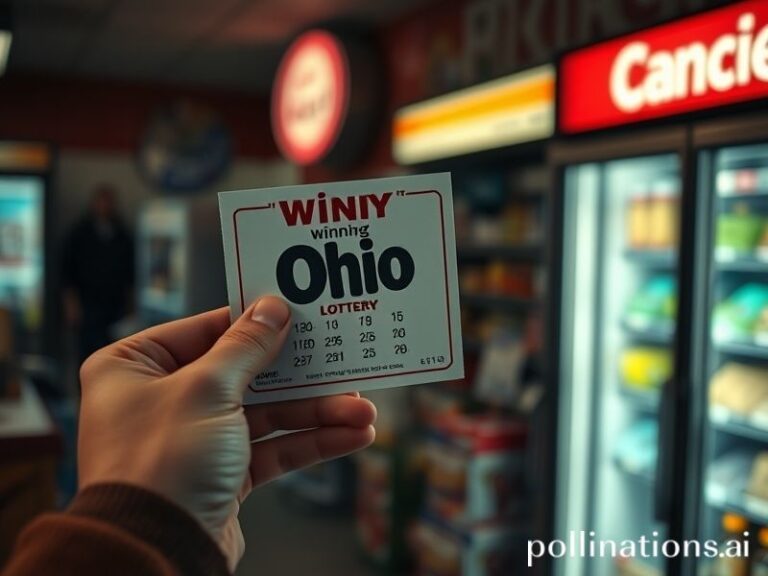Seminoles Abroad: How FSU’s 2024 Schedule Became a Global Export of Controlled Chaos
Tallahassee, Florida – In the grand casino of global culture, where nations gamble on oil futures, semiconductor supremacy, and the next TikTok dance, the release of a college-football schedule might appear as charmingly parochial as a parish bake sale. Yet when Florida State University—those garnet-and-gold merchants of controlled violence—dropped its 2024 slate last week, the tremor was felt from Shenzhen sports bars to Lagos betting shops, reminding the planet that American pageantry still exports better than democracy.
Let us begin with the geopolitics of leisure. The Seminoles open in Dublin on August 24, squaring off against Georgia Tech in a game optimistically branded the “Aer Lingus College Football Classic.” Nothing says Irish heritage quite like two teams from the American Deep South borrowing a national carrier’s name to hawk cable subscriptions. Dublin pubs, already seasoned by Brexit whiplash, will now pour lukewarm Bud Light to bewildered locals wondering why the lads are wearing helmets instead of resolving existential dread the proper way—over pints and centuries of resentment.
FSU’s schedule is a twelve-step program in imperial nostalgia. Week 3 brings Memphis to town, a city whose own pyramid has been repurposed from ancient wonder to Bass Pro Shops megastore, thereby achieving in one architectural pivot what the British Empire needed gunboats to do. Week 5’s jaunt to Clemson doubles as a trade summit: the Tigers import Samoan linebackers the way Switzerland imports gold, and the broadcast will beam into Chinese dormitories where students practice English by screaming at referees. Somewhere in the South China Sea, a U.S. aircraft carrier battle group steams past artificial islands, blissfully aware that soft power now wears shoulder pads.
The middle of the schedule is where the cynic’s heart flutters. October 26: Wake Forest visits. A private Baptist university with roughly the same undergraduate population as Liechtenstein will pack eighty-thousand-seat Doak Campbell Stadium. That’s not attendance; that’s a hostile merger. By November, Florida State travels to Notre Dame—an institution that once ran medieval Europe and now negotiates television contracts with the same papal swagger. The Fighting Irish, ever ecumenical, will graciously allow Seminole fans to worship at Touchdown Jesus while the world’s Catholics politely ignore doctrinal questions like “Is targeting still a sin if the replay booth overturns it?”
All of this, naturally, is prelude to the Florida game the Saturday after Thanksgiving. The Gators arrive like a failed state with better hydration. The rivalry has the emotional maturity of a Balkan border dispute, but at least nobody pretends it’s about education. International viewers tuning in via ESPN Player will witness a tableau that doubles as a climate-change case study: coastal cities sinking, humidity thick enough to bottle, and tens of thousands of citizens voluntarily painting their faces in heatstroke orange. If COP28 had a tailgate, it would still serve less methane than Gainesville.
Why does any of this matter beyond the 30.4°N, 84.3°W coordinates of Tallahassee? Because the FSU schedule is a syllabus in soft-power economics. Every broadcast is a two-to-four-hour infomercial for American excess: military-grade turf management, orthodontics as status symbol, and the unshakable belief that any problem can be solved by throwing shoulder pads at it. Foreign central banks buy U.S. Treasury bonds; foreign teenagers buy Jordan Travis jerseys. Both are bets on an empire that can still choreograph a fourth-quarter comeback even as its credit rating wobbles.
When the final whistle blows in whatever December bowl game the College Football Playoff cartel deigns to assign, the stadium lights will dim, the drones will fly home, and the satellites will pivot to the next marketable spectacle. Yet somewhere in Nairobi, a bar owner will keep the FSU flag flying—partly for the expats, partly because garnet matches the blood-red of local politics. The Seminoles’ 2024 schedule, like all American exports, is ultimately a reminder that the world still pays premium for the illusion of certainty: a clock that runs forward, a scoreboard that tallies clean, and a narrative where even the conquered get a halftime show.
Place your bets accordingly. Just remember the house always wins—unless, of course, the replay booth overturns it.







